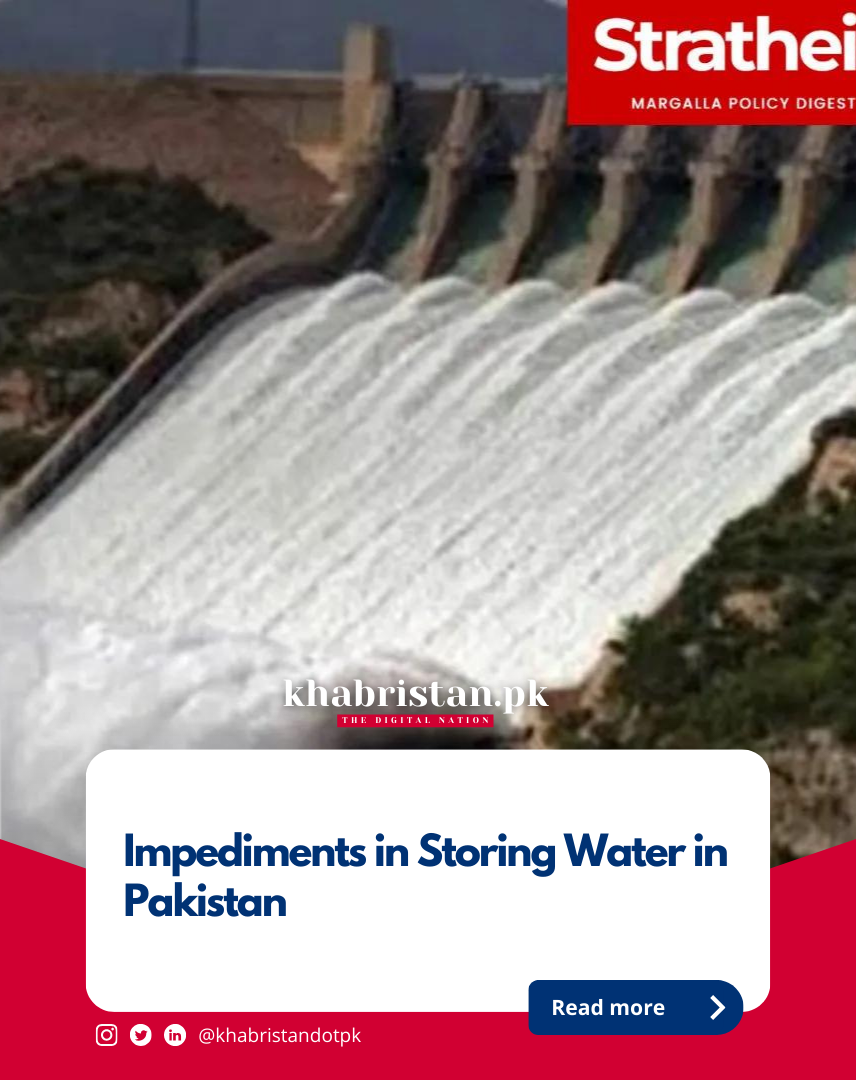Pakistan gets ransacked by rains every monsoon with a huge level of water standing in almost all parts of the country. Despite such a massive availability of rainwater, the authorities have singularly failed to make arrangements for storing water.
Successive governments have tinkered with plans to build large storage dams, but excessive political manipulation has consistently hampered such crucial projects. Most elected representatives ended up squandering development funds owing to lobbies striving to secure their respective interests.
This tendency spread dangerously, creating a general feel in the political elements to dabble in development work for obtaining personal gains. The situation aggravated when political leaders wanted to take credit for development tasks without realizing that such municipal tasks are better left in the hands of local governments.
The most harmful result of this short-sighted approach is the lack of water storage facilities in the country.
The distribution of water is always considered the most contentious issue in any country, usually solved through intense give-and-take negotiations. Unfortunately, this bargaining process is missing in Pakistan. Such negotiations are carried out behind closed doors, revolving around the willingness to offer and accept.
Pakistan is no exception to differences of opinion between federating units. This was evident during the construction of Mangla Dam in the 1960s, where the residents of Mirpur mounted stiff opposition. The government accommodated many affected families in adjacent areas and initiated a scheme to relocate the other affected individuals to North West England.
Similar concerns and discussions surrounded the Tarbela, Ghazi Barotha, Neelum-Jhelum projects, which were successfully brought to fruition through the efforts of politicians, government officials, and technocrats.
Patient negotiation has never been part of the Pakistani national psyche due to fears of manipulation. However, once efforts are made to patiently debate an issue, positive results can be achieved, as seen with the Water Accord in 1991 that led to the creation of IRSA.
The political set-up gave enough credibility to the technical advice rendered by WAPDA and accepted the plans for Diamer-Bhasha Dam. However, political inertia, as usual, stalled the project for eight years. To avoid further delays, it is essential that the Water Accord provides guarantees for provincial water rights and addresses issues such as seawater intrusion in the Sindh Delta.
The construction of dams also entails water conservation and the protection of lands through dykes, embankments, and adjustable mechanical gates. The cost of building these devices may be reimbursed by levying a charge on net hydel profits accrued from the dams, with the profits allocated to the provinces in proportion to their losses.
Cultivation of high-water requiring crops may be discouraged through volumetric water charges. Additionally, the construction of new storage facilities should ensure that Sindh benefits from an additional supply of freshwater, requiring extra cultivable land to be brought under regular cultivation and pay their water bills.
The time has come to gradually remove all impediments to storing water in Pakistan, allowing the country to take advantage of the high levels of rainwater that usually go to waste.
Despite the abundance of rainwater in Pakistan, the lack of water storage facilities remains a significant issue. Successive governments’ political manipulation, personal interests, and reluctance to involve local governments have hindered the construction of large storage dams. The distribution of water and negotiations between federating units are contentious, and patient debate and negotiation are needed to find solutions. The building of dams, like Diamer-Bhasha Dam, can increase water shares for provinces and make them food secure. Guaranteeing provincial water rights, addressing seawater intrusion in Sindh Delta, and fair reimbursement for losses sustained due to dams are also important considerations. Cultivation of high-water requiring crops may be discouraged through volumetric water charges. With the removal of impediments, Pakistan can make use of its rainwater effectively.








Leave a Comment